Adamson, William (1863-1936)
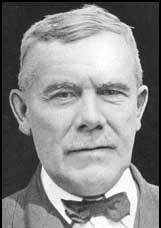
General Secretary of the Fife Miners' Union from 1908 until his death. In 1910 became Scotland's first miners' MP, representing
Fife West until 1931. Prominent within the Parliamentary Labour Party, as chairman and nominated leader from 1917 to 1921.
Secretary of State for Scotland in MacDonald's 1924 and 1929 governments. Lost his parliamentary seat to a Tory in 1931 and
failed to regain it in 1935 when Willie Gallacher of the Communist Party was elected.

Adler, Alfred (1870-1937)
Austrian Psychiatrist, creator of the system of Individual Psychology; first to describe the “inferiority
complex”. He developed a flexible method of psychotherapy to assist people to overcome feelings of inferiority, focussing
on the relation of an individual to the goals and values determined by their social environment.
Adler began to explore psychological illness in about 1900, within the context of general medical practice, and from 1902
was closely associated with Sigmund Freud. However, after his Study of Organ Inferiority and Its Psychical Compensation was published in 1907,
his own views began to take shape independently, down-playing Freud's insistence on the centrality of sexual conflicts in
early childhood as the cause mental illness. For Adler it was a person's striving for self-esteem and recognition that is
central, and sexual problems were seen as expressing difficulties arising in this area.
From 1911, Adler broke from Freud and became publicly critical of him and in 1912, coined the term individual psychology
to characterise his own views, as set out in The Neurotic Constitution.
Adler held that difficulties people encounter in gaining self-esteem and recognition, if not overcome by the normal means
lead to compensatory behaviour and resultant personality disorders which are now widely referred to as an inferiority
complex.
The other important elements of Adler's psychology are lifestyle — the particular system of values and activities
which a person acquires in their upbringing, and the social interest drive — an urge to cooperate with other
people for the common good, which Adler took to be inherent in human beings. The method of therapy he used is simply to direct
the patient's attention to the unsuccessful, neurotic character of the way the patient is dealing with their feeling of inferiority,
and assist the patient in restoring a feeling of self-esteem and in working out a realistic set of goals.
In 1934 the fascist government in Austria closed his 30 child guidance clinics. Many of his later writings, such as What Life Should Mean to You (1931), were directed to the general reader.
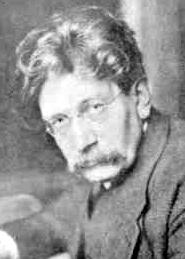
Adler, Friedrich (1879-1960)
Secretary of the Austrian Social Democratic Party from 1911 to 1916, when he assassinated the Austrian premier. Freed from
prison by the 1918 revolution, he was a founder of the Two-and-a-Half International, which he led back into the Second International
in 1923, becoming secretary of the combined body.
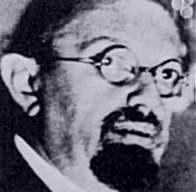
Adler, Max (1873-1937)
Leading theoretician and philosopher of Austro-Marxism who helped supply it with some of its radical formulations.
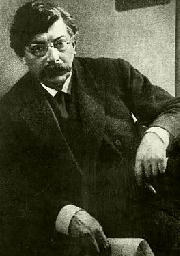
Adler, Victor (1852-1918)
Founder and leader of the Austrian social democracy and a member of the International Socialist Bureau. Social chauvinist during World War I.
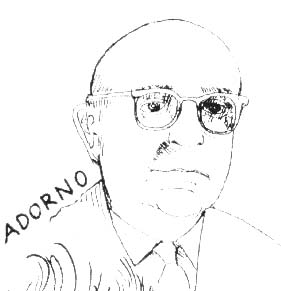
Adorno, Theodor (1903 - 1969)
German philosopher who also wrote on sociology, psychology, and musicology.
Adorno obtained a degree in philosophy from Johann Wolfgang Goethe University in Frankfurt in 1924. His early writings,
which emphasise aesthetic development as important to historical evolution, reflect the influence of Walter Benjamin's application of Marxism to cultural criticism. After teaching two years at the University of Frankfurt, Adorno immigrated
to England in 1934 to escape the Nazi persecution of the Jews. He taught at the University of Oxford for three years and then
went to the United States (1938), where he worked at Princeton (1938-41) and then was co-director of the Research Project
on Social Discrimination at the University of California, Berkeley (1941-48). Adorno and his colleague Max Horkheimer returned
to the University of Frankfurt in 1949. There they rebuilt the Institute for Social Research and revived the Frankfurt school
of critical theory, which contributed to the German intellectual revival after World War II.
One of Adorno's themes was civilisation's tendency to self-destruction, as evinced by Fascism. In their widely influential
book Dialectic of Enlightenment (1947), Adorno and Horkheimer located this impulse in the concept
of reason itself, which the Enlightenment and modern scientific thought had transformed into an irrational force that had
come to dominate not only nature but humanity itself. The rationalisation of human society had ultimately led to Fascism and
other totalitarian regimes that represented a complete negation of human freedom. Adorno concluded that rationalism offers
little hope for human emancipation, which might come instead from art and the prospects it offers for preserving individual
autonomy and happiness. Adorno's other major publications are Philosophy of Modern Music (1949), The Authoritarian Personality (1950, with others), Negative Dialectics (1966), and Aesthetic Theory (1970).
